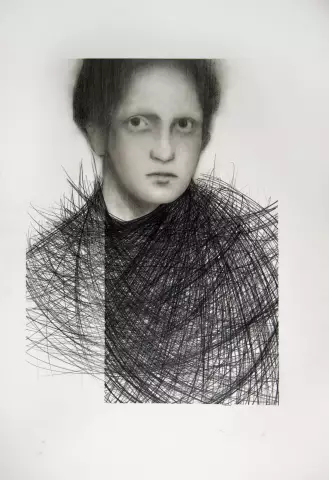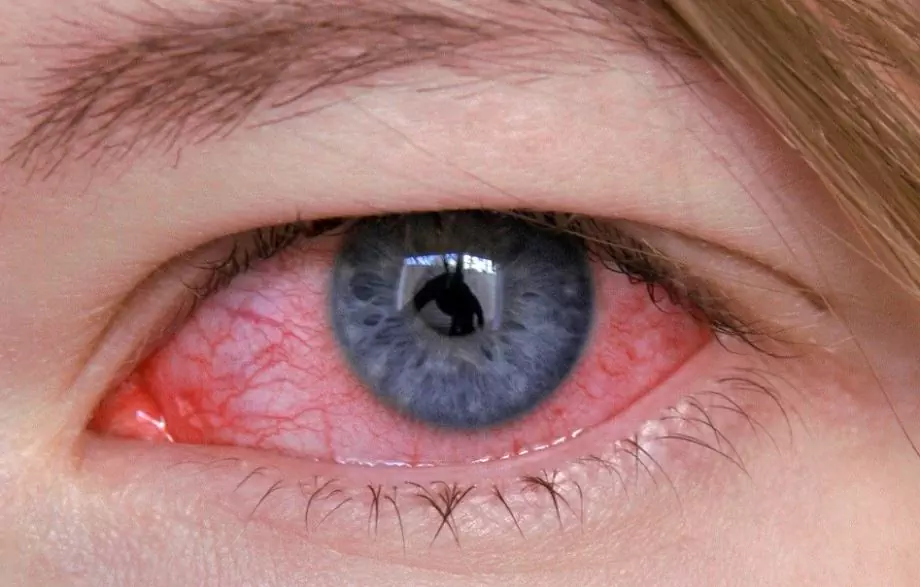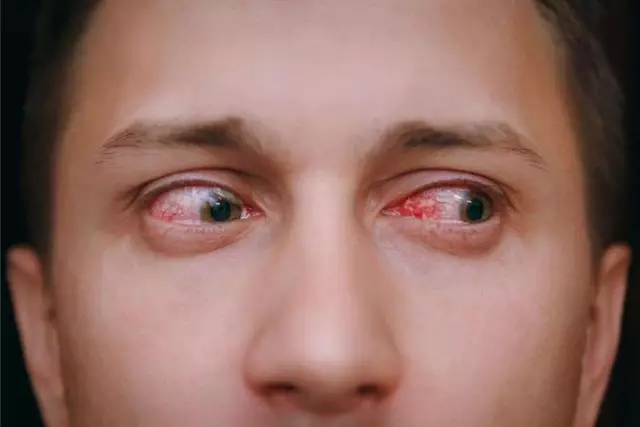- Author Rachel Wainwright wainwright@abchealthonline.com.
- Public 2023-12-15 07:39.
- Last modified 2025-11-02 20:14.
Depersonalization

Depersonalization is a mental disorder associated with a lack or impairment of self-perception. The patient perceives his thoughts, feelings and actions with a sense of observation from the outside and alienation. This disorder is often a symptom of mental illness.
Causes and symptoms of depersonalization
Depersonalization of the personality is associated with other diseases of the psyche and the central nervous system. The most common causes of depersonalization are panic disorder, depression, stress, schizophrenia, and bipolar disorder.
The disease can be both short-term and long-term. Prolonged and severe depersonalization can lead to suicide.
The main reasons for depersonalization include:
- severe mental shock, stress and shock;
- severe mental illness, including psychosis, schizophrenia, manic syndrome, etc.;
- neurological disorders;
- congenital pathologies of the central nervous system;
- mental disorders under the influence of physical trauma.
Depersonalization of personality can act as a defense mechanism during an emergency that requires a quick solution or action without regard for emotion. In this case, the condition is temporary and is not a pathology.
Biochemical and neurological disorders can lead to a protracted state, which is caused by disturbances in the functioning of serotonin and opioid receptors, disruptions in the functioning of the pituitary gland and adrenal glands.
The symptoms of depersonalization are the following mental states and feelings of the patient:
- complete or partial erasure of the perception of one's own personality and its features;
- lack of emotions and involvement in life processes, events, etc.;
- emotional indifference to loved ones and people around them;
- darkened perception of reality (without sound and color perception);
- indifference and lack of perception of music, art and nature;
- poor memory;
- decreased vision and hearing;
- loss of tactile sensations and impaired sense of smell;
- depression, longing and mental emptiness;
- perception of one's own body and its parts as an automaton, an inanimate and impersonal object;
- feeling of slowness of time and events;
- lack of imaginative thinking;
- loss of orientation in space and time;
- lack of pain, taste and temperature sensitivity.

In stress, the symptoms of personality depersonalization are anhedonia, detachment and withdrawal. Under the influence of emotional stress, neurochemical homeostasis is disrupted, which leads to blocking of emotions and a depressive state. The sensitivity of the receptors is disturbed, the perception of reality and the place of personality in it is distorted. A prolonged state of depersonalization leads to a cascade disruption of the receptor system.
Types of personality depersonalization
In psychiatry and neurology, depersonalization is classified into autopsychic with impaired perception of one's own personality, external with impaired perception of reality, as well as somatopsychic with impaired perception of one's body and its organs.
According to the type of development and reason, depersonalization of the personality is divided into the following types:
- slight violation of self-awareness with a delayed or incomplete perception of one's personality and actions;
- loss of individual specificity and social isolation, accompanied by a lack of personal worldview (thoughts, views, etc.) and facelessness;
- anesthetic depression with emotional dullness or complete insensibility.
Depersonalization treatment
Treatment for depersonalization begins with addressing the causes of the disorder and the symptoms of mental illness. The psychiatrist and neurologist must find the relationship between depersonalization and anxiety, as well as other pathological manifestations.
In case of severe attacks of panic and anxiety, accompanied by uncontrolled actions of the patient, tranquilizers (Phenazepam, Adaptol, Bellataminal, etc.), antidepressants (Amitriptyline, etc.) and antipsychotics (Sonapax, Etperazin, etc.) are prescribed.
The attending physician needs to select drugs with a high anticholinergic effect for the patient with personality depersonalization syndrome, as well as prescribe drug therapy aimed at relieving anxiety and maintaining a normal mental state.
If a patient has disorders in the functioning of the opioid system of the brain, then depersonalization is treated with opioid receptor antagonist drugs, such as Naltrexone, Naloxone, etc. A combination of anticonvulsant drugs and serotonin inhibitors will be most effective.
In the United States and some European countries, depersonalization is treated with high doses of antioxidant nootropics, such as Cavinton, Cytoflavin, Mexidol, etc.
Medical research has found that the use of anticonvulsants in personality depersonalization syndrome is controversial. When these drugs are discontinued, patients often experience feedback syndrome, and symptoms of the disease that were manifested before the course of treatment return. The neurotransmitter chaos that occurs after the discontinuation of Anafranil and other anticonvulsants has a severe course and requires prolonged and intensified treatment.
In the early stages of depersonalization, patients are prescribed mild stimulant drugs, including caffeine and phenamine. In some cases, it is advisable to prescribe a course of MAO inhibitors, but it is better to exclude the use of antipsychotics.
As an additional therapy for depersonalization syndrome, regular sessions with a psychiatrist, physiotherapy, massage, physiotherapy exercises and special procedures to restore sensitivity are prescribed.
YouTube video related to the article:
The information is generalized and provided for informational purposes only. At the first sign of illness, see your doctor. Self-medication is hazardous to health!






